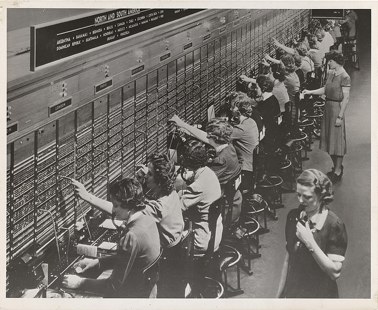How to get hired: What not to do
By Spicer Matthews
 Job hunting? I’ve been there. Less than a year ago, I applied to more jobs than I can remember and went on five interviews before I landed a new position. It was a learning experience, or so I thought. Recently, I found myself on the other side of the table as a member of a hiring committee. This time, I was the one sifting through scores of letters and resumes, evaluating qualifications and conducting interviews. And every time I shook my head at a novel-length cover letter or a resume that looked like it belonged to a 16-year-old, I realized I was learning much more about job hunting than ever before. Here, then, are some tips from someone who’s been there. But this isn’t a how-to for applicants; it’s a how NOT to.
Job hunting? I’ve been there. Less than a year ago, I applied to more jobs than I can remember and went on five interviews before I landed a new position. It was a learning experience, or so I thought. Recently, I found myself on the other side of the table as a member of a hiring committee. This time, I was the one sifting through scores of letters and resumes, evaluating qualifications and conducting interviews. And every time I shook my head at a novel-length cover letter or a resume that looked like it belonged to a 16-year-old, I realized I was learning much more about job hunting than ever before. Here, then, are some tips from someone who’s been there. But this isn’t a how-to for applicants; it’s a how NOT to.
DO NOT:
Cover letter
- Use a generic opening. There are only so many times – maybe twice – I could read “I would be a good fit for this position because…” before my eyes glazed over. Obviously you need to explain why you’re the perfect candidate, but you don’t need to bore people to death doing it. Make the reader want to meet (read: interview) you. (Aside: I went with unusual openings when I was a job seeker, and I’d like to think the tactic helped me land those five interviews.)
- Define the company. The person hiring you already knows what the organization does, what its mission statement is and whom it serves. Proving you can look up a website will not give you an edge.
- Re-write your resume. The cover letter and resume are different for a reason; one shouldn’t be a re-worded version of the other. Use the cover letter to detail your most relevant work experience, or share something that isn’t in your resume. It’s where you should explain any questions your resume might bring up: Gaps in employment, lots of jobs in a short period of time, little relevant experience.
- Get too wordy. One page is fine.
- Make typos, use incorrect grammar or spell things wrong. Yeah, you already knew this, but apparently some of you think you’re (not “your”) much better editors than you are. This is the time to swallow your pride and ask a perfectionist friend (or two) to check things over for you. Trust me, it’s worth it.
Resume
- List an objective. Really, who cares? We know your main objective: To get this job.
- Use personal testimonies. I can hardly believe this needs to be said, but I honestly saw a resume that had quotes from friends and co-workers about how wonderful an applicant was. It was unnecessary (that’s what references are for) and just plain weird.
- Talk about irrelevant experience. You have CPR certification? Great! But if you’re applying for an upper-level marketing position, it’s not a benefit and looks like you might have applied for the wrong job.
- Go too long. That’s not to say you have to keep it to one page, as has been the rule. Unless a length is specified, no one is going to throw out your application because your resume goes on to a second page. However, it shouldn’t go too much past a second page. Say what needs to be said.
Interview
- Be vague. When asked about your experience, bring up specific projects. Talk about what you actually did and what tools you used to do it.
- Get off topic. If the question is long or complicated, feel free to ask the interviewer to repeat it. Write it down if necessary. Generally, it’s a good thing if the person interviewing you is writing notes as you answer. If she’s chewing the end of her pencil and staring vacantly at the clock, wrap it up. Fast.
- Act cool. You want the job, right? Be enthusiastic. Don’t worry about seeming desperate. I’d rather hire someone who seemed desperate for a job than someone who seemed like he didn’t need it.
There you have it: Everything not to do if you want to land that job. I can’t promise these tips will get you hired – if I could, I would be in the Bahamas on my yacht right now – but I can promise they’ll keep your application from being immediately sent to the shredder.